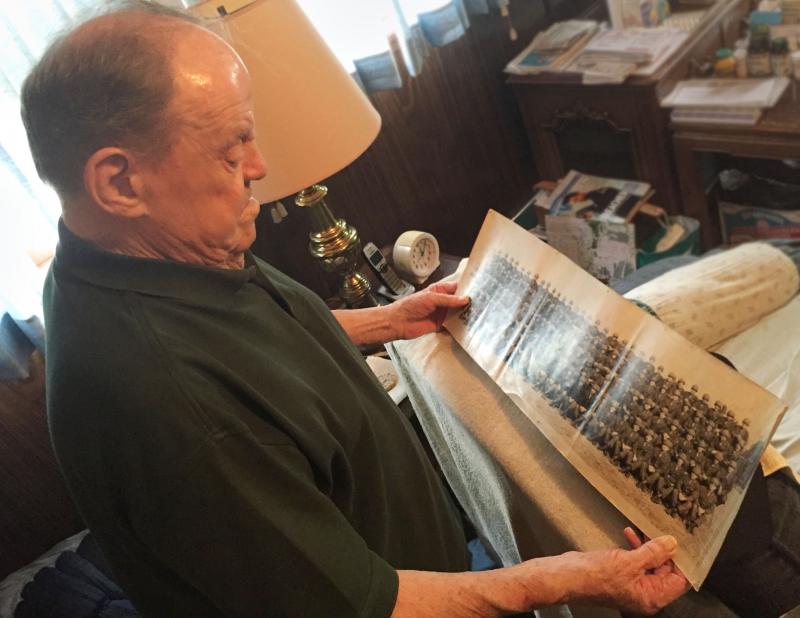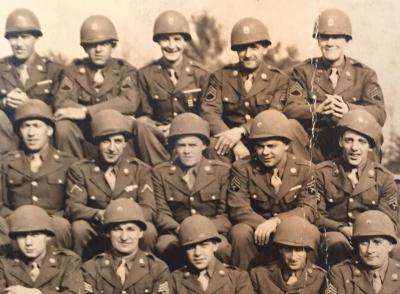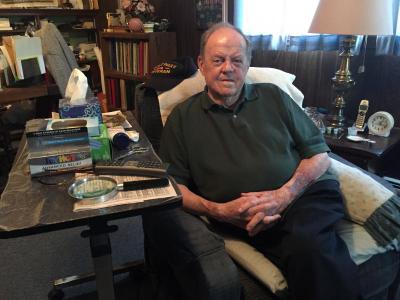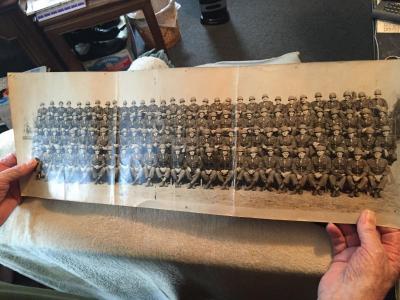Meet Bill Whipp, who was shot, suffered frostbite, and walked through Europe during WWII
Dartmouth resident William “Bill” Whipp spent every night in Europe behind enemy lines during the Second World War.
“You stay there and try to get back before daylight. Sometimes you don’t make it,” said 90-year old Whipp, explaining the complexities of combat intelligence for the United States Army. “You’d pick up all the information you could—snipers, what they’re doing on the other side—any information.”
Whipp was born in Fall River in 1926 to Catherine Ryan—"an old Irish woman"—and Robert Whipp. You’d traverse the city with a five-cent bus or trolley car ride, said Whipp.
Drafted at 18 years old, “like everyone else,” Whipp served from 1944 to 1946 in the 76th division. He said serving in the military was popular and many volunteered. “It was the American way of doing it. But I was in high school.”
His oldest brother Richard served in the infantry in the South Pacific, while his youngest brother Robert was a paratrooper in Tokyo. “He only landed in one plane, and that was when he was coming home,” joked Whipp. “My oldest brother, he was hit twice, that poor bugga. After the second time, they shipped him home.”
Whipp landed in England, was “dumped in France” a month or two following D-Day, and "walked through Europe."
“War is hell, I’ll tell you that much,” he said, describing the destruction in Europe.
Whipp served in five campaigns, including the Battle of the Bulge. “When you’re in combat, people forget about everything that you normally would do—washing, having hot meals, going to the bathroom, sleeping,” said Whipp. “You had to be careful about what you drank because they used to poison the wells.”
On top of struggling with daily needs, Whipp faced severe injuries. “I was wounded. I was shot in the back, my left arm. Both hands were frozen. They thought I’d lose my hands,” he said. He recalled how the surgeon—who shouldn’t have been on the frontline “because he was too valuable”—shaved off the sides of Whipp’s fingers until they bled. Whipp’s hands only bother him now between November and March, when the cold hits.
Whipp talked about meeting a man who had fashioned suspenders to hold up his utility belt. Whipp said he tried to buy the suspenders off of him, as the heavy belt bothered his hips, but was unsuccessful. Shortly after, the man died.
“That one day, I’ll never forget. I got those suspenders,” he said. Shifting the weight from his hips to his shoulders was “like a woman taking off the girdle.”
Whipp still has hip problems because of that belt, he said, but that’s not the only thing that has stayed with him. He talked about walking through Fall River after the war when a car backfired. “I was in the gutter,” he said. “They thought I was wacko.”
Upon returning home, Whipp married Cecilia, who still lives with him on Old Fall River Road. They moved to Michigan, where he made $300 each week working construction—“big money in those days.” Five children later and 64-years as a Dartmouth resident, Whipp still thinks about the his two years in the military.
“I must get up three to four times a night and it comes back to me. I can’t understand why it comes back to me now,” he said. He said the memories tortured him for the first two years he was back stateside, and then he calmed a little. “It’s tough, and people don’t know what war is unless they’re on the frontline.”
Whipp said he would send Christmas cards yearly to his army peers, but they’re all deceased now. He doesn’t take credit for his long, healthy life. “The guy upstairs was looking after me,” said Whipp.
Whipp currently serves on the Dartmouth Veterans Advisory Board, but he said he’s thinking about retiring.


















